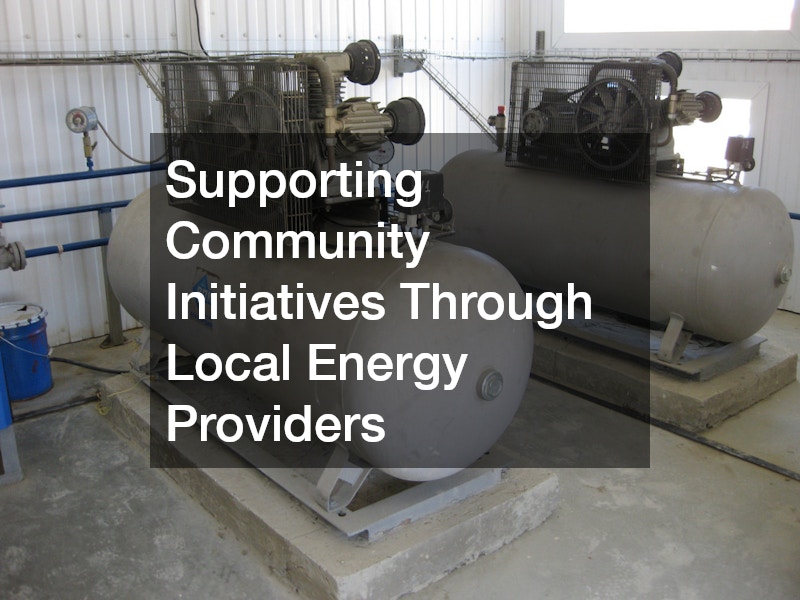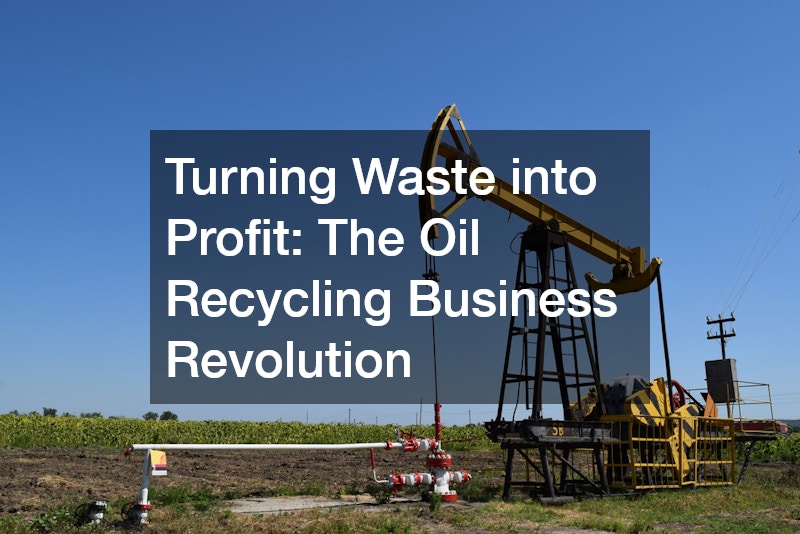
Introduction
In an age increasingly defined by environmental awareness and sustainability, the oil recycling business stands out as a beacon of innovation and opportunity. As global demand for energy surges, the need to adopt more responsible consumption practices has never been more urgent. The oil recycling industry is revolutionizing how we think about waste, turning what was once discarded into valuable resources. This transformation not only mitigates the environmental impact of used oils but also presents significant economic opportunities for entrepreneurs and communities alike.
Every year, millions of gallons of oil are used for heating, cooking, and transportation, leading to substantial waste. Traditional disposal methods, which often involve landfilling or incineration, are becoming increasingly untenable due to stringent regulations and the growing environmental consciousness among consumers. However, the oil recycling business offers sustainable alternatives that not only preserve the environment but also enhance energy efficiency and reduce costs.
Sustainable Alternatives: Local Heating Solutions for a Greener Future

The local heating oil market is undergoing a significant transformation, driven by the oil recycling business’s commitment to sustainability. Traditionally, heating oil has been a staple for many households, particularly in colder climates. However, the environmental implications of extracting and refining new oil have prompted a shift towards recycling used oils as a viable alternative.
Recycled heating oil is not only environmentally friendly but also economically advantageous. By reprocessing used oil, companies can offer lower prices compared to new heating oil, making it an attractive option for consumers looking to reduce their energy bills. This recycled product meets the same performance standards as its non-recycled counterpart, ensuring that homes remain warm without compromising quality.
Moreover, utilizing locally recycled heating oil reduces transportation emissions associated with importing new oil. This shift fosters a circular economy where waste is minimized, and resources are conserved, contributing to a more sustainable energy landscape. By choosing local heating solutions, consumers not only support their communities but also play a crucial role in the broader movement towards environmental responsibility.
Innovative Storage Solutions: The Role of Propane in Energy Efficiency
In the quest for energy efficiency, propane has emerged as a key player. Often used as an alternative heating solution, propane tanks provide an innovative storage option that complements the oil recycling business. These tanks can store energy efficiently and safely, reducing waste and ensuring that households have access to reliable heating solutions.
Propane is not only versatile but also cleaner-burning than many traditional fuels. By integrating propane into the energy mix, communities can lower their carbon footprints while benefiting from the cost-effectiveness of this energy source. The oil recycling business plays a vital role in this equation by promoting the use of recycled heating oils in conjunction with propane, creating a dual strategy for reducing waste and enhancing energy efficiency.
As propane tanks are installed and maintained properly, they can serve as a sustainable storage solution for both recycled oil and propane fuel. Best practices in tank installation and management further ensure that these energy sources are utilized safely and efficiently, minimizing the risk of leaks and environmental contamination.
Ensuring Safe Fuel Storage: Best Practices for Installation
Safety is paramount in the oil recycling business, particularly when it comes to fuel storage. Proper installation and maintenance of oil tanks are essential to prevent leaks and environmental hazards. As more consumers turn to recycled oils for heating, understanding best practices for oil tank installation becomes critical.
One of the first steps in ensuring safe fuel storage is selecting the right type of tank. Depending on the specific needs of a household or business, options may include above-ground or underground tanks. Each type has its benefits and potential drawbacks, making it crucial for users to understand their unique requirements.
Once a tank is chosen, proper installation is key. This involves adhering to local regulations and industry standards, which often dictate specific placement, size, and construction materials. Regular inspections and maintenance are equally important; companies in the oil recycling business should offer services to ensure that tanks remain in optimal condition throughout their lifespan.
Educating consumers on the importance of safe fuel storage can help mitigate risks associated with oil leaks or spills. The oil recycling business has a responsibility not only to recycle waste but also to ensure that the fuels being used are stored securely and managed responsibly.
Exploring Eco-Friendly Options for Diesel Fuel Consumption

Diesel fuel consumption presents a significant challenge in the quest for sustainability. Traditionally derived from crude oil, diesel has long been associated with environmental concerns, including air pollution and greenhouse gas emissions. However, the oil recycling business is paving the way for eco-friendly alternatives that reduce the impact of diesel fuel consumption.
Recycled diesel fuel, often produced from used cooking oils and other waste materials, offers a promising solution. This process not only diverts waste from landfills but also creates a renewable energy source that can power vehicles and machinery. By converting waste into fuel, companies in the oil recycling sector contribute to a circular economy that prioritizes resource conservation.
Additionally, advancements in technology have made it possible to improve the efficiency of recycled diesel. New methods for processing and refining used oils are being developed, allowing for higher-quality fuels that meet stringent emissions standards. This not only benefits the environment but also enhances the performance of diesel engines.
Promoting the use of recycled diesel fuel also involves education and outreach efforts. Consumers and businesses need to be informed about the availability and benefits of these eco-friendly options. By partnering with energy providers and local governments, the oil recycling business can help facilitate the transition to greener fuel consumption.
Maximizing Value: The Importance of Responsible Disposal
In the oil recycling business, responsible disposal is a cornerstone of sustainability. Proper disposal of used oils—whether they are from heating systems or cooking—ensures that valuable resources are not wasted and that environmental contamination is minimized. This practice not only helps the environment but also maximizes the economic value of these materials.
Cooking oil disposal services play a crucial role in this process. Many households and restaurants generate significant amounts of used cooking oil, which, if not disposed of properly, can lead to clogged drains and environmental hazards. By providing a responsible disposal solution, the oil recycling business can divert this waste from landfills and repurpose it into usable products, such as biodiesel.
This not only reduces waste but also creates economic opportunities. Recycled cooking oil can be transformed into biodiesel, a renewable energy source that can power vehicles and reduce greenhouse gas emissions. This process illustrates how responsible disposal can lead to the creation of valuable resources that contribute to a more sustainable energy landscape.
Moreover, raising awareness about the importance of responsible disposal can encourage consumers to take action. Educational campaigns can inform households and businesses about how to properly dispose of their used oils, highlighting the benefits of recycling and the potential for financial savings.
By emphasizing the importance of responsible disposal, the oil recycling business can enhance its role as a leader in sustainability. This commitment to maximizing value not only benefits the environment but also fosters economic growth and community support.
Partnering with Energy Providers for Sustainable Practices
Collaboration is essential in the oil recycling business, particularly when it comes to partnering with an energy company. These partnerships can enhance the sustainability of energy practices and foster community initiatives that promote responsible consumption.
Energy companies are increasingly recognizing the importance of sustainability in their operations. By collaborating with oil recycling businesses, they can offer consumers eco-friendly alternatives that align with modern environmental values. For instance, energy providers can support the distribution of recycled heating oils or biodiesel, helping to create a more diversified energy portfolio.
These partnerships can also lead to innovative solutions that benefit both parties. For example, energy companies might invest in research and development alongside oil recyclers to create new technologies that improve recycling processes and enhance fuel efficiency. This collaborative approach not only drives innovation but also amplifies the impact of sustainable practices across the industry.
Moreover, community initiatives can thrive when energy providers and oil recycling businesses work together. By organizing educational workshops, local recycling events, and awareness campaigns, these partnerships can engage consumers and promote sustainable energy practices on a grassroots level.
Heating Homes Responsibly

As more consumers seek eco-friendly heating solutions, the oil recycling business is well-positioned to provide responsible options. Kerosene services, for example, are evolving to incorporate recycled heating oils, creating a sustainable alternative for homeowners.
Kerosene has long been a popular choice for heating, but concerns about its environmental impact have prompted a reevaluation of its use. By integrating recycled oils into kerosene services, companies can offer a product that is both effective and sustainable. This transition not only reduces reliance on new fossil fuels but also supports local recycling efforts.
Additionally, educating consumers about the benefits of using recycled heating oils can help drive demand for these eco-friendly options. Many homeowners may not be aware of the advantages of switching to recycled products, such as lower costs and reduced environmental impact. Through outreach and marketing efforts, the oil recycling business can raise awareness and encourage responsible heating practices.
By prioritizing responsible heating solutions, the oil recycling industry can contribute to a greener future. This not only aligns with consumer values but also reinforces the industry’s commitment to sustainability.
Essential Maintenance: The Importance of Boiler Care
In the oil recycling business, maintaining equipment such as boilers is crucial for ensuring efficiency and safety. Regular boiler care not only prolongs the lifespan of these systems but also enhances energy efficiency, reducing waste and costs for consumers.
Boilers that burn recycled heating oils require particular attention to ensure optimal performance. Regular maintenance checks can identify potential issues before they become significant problems, preventing costly repairs and minimizing environmental impact. Companies in the oil recycling business should offer comprehensive boiler repair services to support their customers in achieving energy efficiency.
Moreover, educating consumers about the importance of boiler care can help them understand how to maximize the benefits of using recycled oils. Simple steps, such as regular inspections and cleaning, can significantly enhance the performance of boilers and reduce energy consumption.
By prioritizing boiler care, the oil recycling business can promote sustainable heating practices while fostering customer loyalty. This commitment to maintenance underscores the industry’s dedication to providing reliable and eco-friendly solutions.
Turning Used Materials into Valuable Resources
The oil recycling business thrives on the principle of transforming used materials into valuable resources. One of the most promising avenues for this transformation is through the recycling of used cooking oils. By diverting these oils from landfills and reprocessing them, companies can create biodiesel and other renewable energy sources.
Recycling used cooking oils not only minimizes waste but also contributes to a more sustainable energy landscape. Biodiesel produced from recycled oils can power vehicles, heating systems, and industrial machinery, reducing reliance on fossil fuels and lowering greenhouse gas emissions.
Moreover, the economic potential of recycling used materials is significant. As demand for renewable energy sources continues to grow, the market for recycled oils is expanding. This presents new opportunities for businesses in the oil recycling sector to innovate and develop additional products that meet consumer needs.
By turning waste into valuable resources, the oil recycling business exemplifies the principles of sustainability and circular economy. This approach not only benefits the environment but also drives economic growth and community support.
Supporting Community Initiatives Through Local Energy Providers

Local energy providers play a vital role in supporting community initiatives related to the oil recycling business. By collaborating with these companies, recycling businesses can enhance their outreach efforts and promote sustainable energy practices within their communities.
Local oil companies often have established relationships with consumers, making them ideal partners for promoting recycled heating oils and other eco-friendly products. By working together, they can create awareness campaigns that inform residents about the benefits of using recycled oils, helping to shift consumer behavior towards more sustainable options.
Additionally, community initiatives such as recycling drives and educational workshops can be organized in partnership with local energy providers. These events not only raise awareness about oil recycling but also foster a sense of community involvement and responsibility.
By supporting community initiatives, the oil recycling business can strengthen its ties to local consumers and demonstrate its commitment to sustainability. This grassroots approach not only enhances brand loyalty but also reinforces the importance of responsible energy consumption.
Conclusion
The oil recycling business revolution represents a significant shift towards sustainability and environmental stewardship. By turning waste into profit, this industry is not only addressing the pressing challenges of waste management and energy consumption but also creating new economic opportunities.
From local heating solutions to innovative storage options like propane, the oil recycling business is at the forefront of sustainable energy practices. Ensuring safe fuel storage, exploring eco-friendly options for diesel fuel, and emphasizing responsible disposal are all integral to maximizing the value of used materials.
Collaboration with energy providers, prioritizing boiler care, and supporting community initiatives further amplify the impact of the oil recycling industry. By embracing a circular economy and promoting responsible consumption, this sector is shaping a greener future for generations to come.
As we navigate an increasingly complex energy landscape, the oil recycling business stands as a testament to the power of innovation and collaboration in addressing environmental challenges. By continuing to invest in sustainable practices and community engagement, this industry can lead the way in turning waste into profit, ultimately fostering a more sustainable and prosperous future for all.
